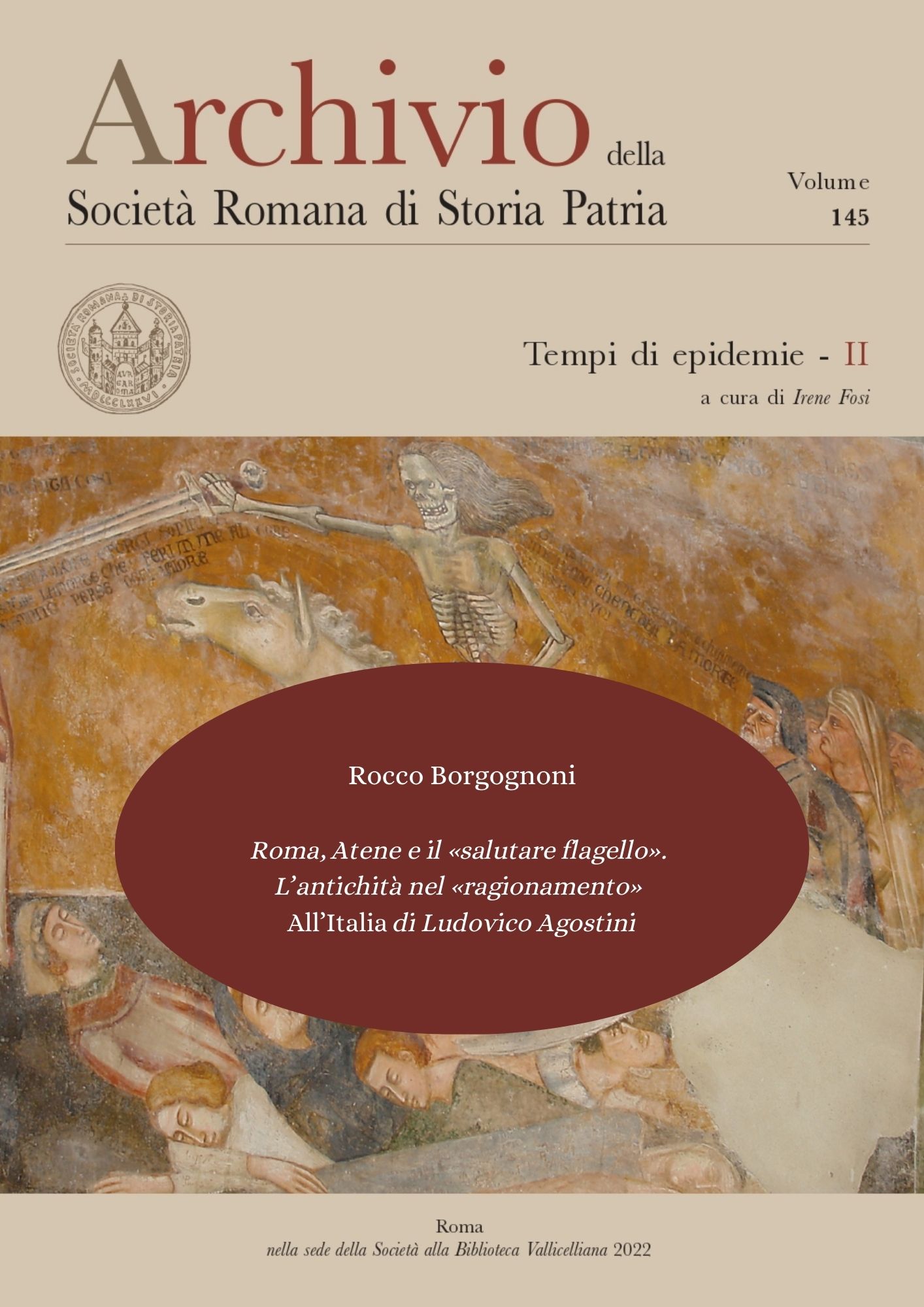Archivio della Società romana di storia patria vol. 145.2 – Rocco Borgognoni
6,00€
Codice DOI 10.61019/ASRSP_145_2
File formato PDF
Roma, Atene e il «salutare flagello». L’antichità nel «ragionamento» All’Italia di Ludovico Agostini
Rocco Borgognoni
The unpublished “Christian reasoning” All’Italia, written by Ludovico Agostini from Pesaro (1536-1612) in a critical phase of his life, arose from his immediate consideration of the plague of 1575-1577. Affected by the religious atmosphere of the Counter-reformation, the author explained the epidemics which had broken out in Italian history as divine punishment for the sins committed by its people. The text is characterized by the significant role played by antiquity, especially Roman antiquity. Antiquity, which Ludovico knew primarily from secondary sources, was first of all the pagan world, as opposed to medieval and early modern Christianity, on which the true faith prevailed and whose political heir and replacement was Papal Rome. At the same time, antiquity became a moral model embodied by the behaviour of its great men and the values of its entire society, as well as a patrimony of wisdom delineated by the main classical authors. This contemporary attraction to antiquity induced Agostini to suggest the allegorical transposition of Greek and Roman practices as remedies against the plague, while he also recognized the early realization of the positive principles of charity and hospitality drawn from those ancient practices in the Jubilee celebrated by Pope Gregory XIII in 1575.
Archivio della Società romana di storia patria, 145
gennaio 2023, pp. 19


